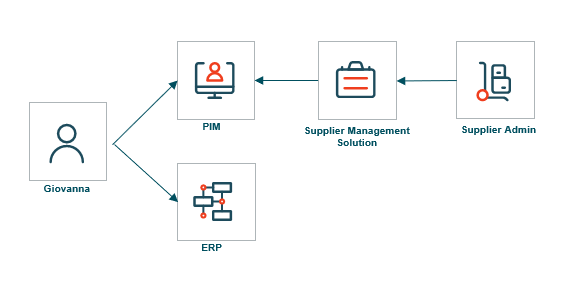Purchasing and Sourcing of the Sellable Assortment in the Retail Industry
In retail, the sellable assortment, sourcing, and purchasing are commonly managed and governed by category managers, who are part of a merchandise organization. A category manager’s role includes the buying of goods and services and reselling them to consumers. Category managers are responsible for a particular category or categories of products, and they work with suppliers to fulfill these categories as determined by the business.
In contrast, in the manufacturing industry, procurement is the process of obtaining goods and services and agreeing to the terms of purchase with external suppliers. A procurement manager’s role includes driving the process of obtaining said goods and services required by the company’s business. This includes identifying operational requirements, evaluating, selecting and working with suppliers, and establishing payment terms, contract negotiations, procurement of goods and services, etc.
Who is Impacted?
Giovanna is the category manager for a major retailer. She is responsible for finding, sourcing, and marketing products for a range of consumer goods. Giovanna works closely with prospective and existing suppliers to develop merchandising initiatives.
What is the Business Problem?
In a multi-domain-driven retail landscape, Giovanna needs the ability to add new supplier accounts to the company’s portfolio, to manage supplier locations by adhering to GS1 standards, and to syndicate product information to the company’s retail partners.
Currently, Giovanna does not have a seamless process which enables her and her team to efficiently manage these activities. The company has several platforms with different user interfaces and requirements to manage supplier account information and product information. Most of Giovanna’s time is spent on manual data manipulation to align the data to different systems’ requirements.
Furthermore, product information within STEP must also be shared across all relevant retail channels.
Current State
Giovanna struggles to obtain relevant supplier and product data in a reasonable time frame. This is caused by having to manually track and manage relationships between separate PIM & ERP systems. Supplier admins enrich their data in a separate supplier management solution which causes delays in synchronizing the most recent updates to the ERP system. This leads to data inconsistencies and duplicate data, as there is no master data strategy.

Future State
A Retail MDM solution facilitates these activities by providing a single data source for supplier accounts, GLNs and product information, as well as the ability to manage product and supplier relationships. The solution also syndicates product data across retail channels by way of Stibo Systems’ Product Data Exchange (PDX) Syndication offering.

Giovanna interfaces with the Retail MDM solution to onboard new supplier accounts and initiate the PDX invitation flow. This provides Giovanna with the ability to invite suppliers to manage their own product and supplier data and have updates published back to the Retail MDM solution. Data is now owned, authored, and mastered by a single source, providing high data quality and a streamlined user experience to all parties.
For more information on Supplier Onboarding, refer to the Supplier Self-Service for Onboarding topic here.
For further information on the steps required to enable suppliers to access channel accounts in PDX, refer to the Onboarding 1 - Giving Suppliers Access to PDX topic in the Accelerator for Retail enablement documentation here.